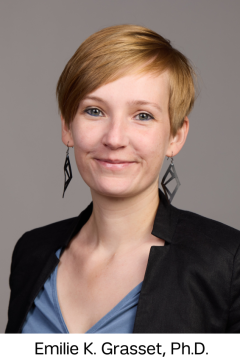The Top Doctors list is created each year by Castle Connolly to help people find the best-in-class healthcare providers in their city. Castle Connolly's Top Doctor directory allows patients to search not only by doctors and hospitals in their area, but by other factors such as specialty, conditions, insurance and location.
Our doctors are listed among the top 1 percent of the nation’s physicians and among the top 10 percent of the region’s specialists by Castle Connolly Medical Ltd., a New York City research and information company that publishes the annual guidebooks America’s Top Doctors and Top Doctors: New York Metro Area, which informs New York Magazine’s annual “Top Doctors” issue.
The most important criterion for physician selection was excellence in patient care. Other criteria included education, residency, board-certification, fellowships, professional reputation, hospital affiliation, medical school faculty appointment, experience and disciplinary history.
We are thrilled to see so many physicians from the Department of Pediatrics on this pretigious list. Congratulations to you all!


